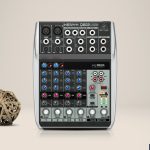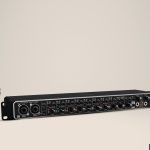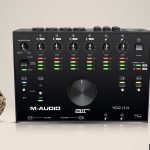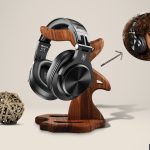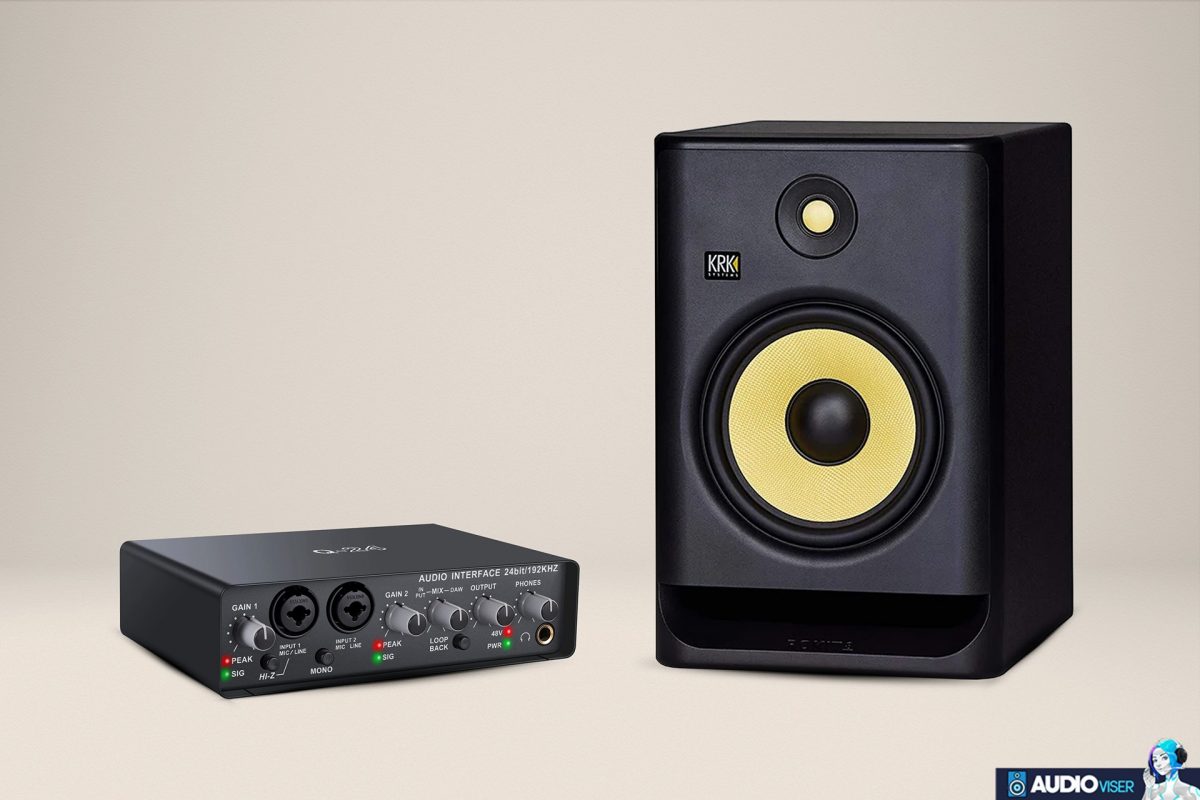
Studio monitors are one of the most crucial devices that any professional in a recording studio needs. They are known as perfect purchases as they will help you guys bring the best out of the music, that you are making or creating in a way! However, some important devices are also known as audio interfaces, which are in use in recording studios as well. Most audio interfaces have the same objective and we will find that out today.
As long as I mentioned these two devices that will help you a lot, you probably have an idea or a question in mind it is do you need an audio interface for your studio monitor? In order to answer this particular question and find out even more about audio interfaces and studio monitors in general, you can stick until the end of this article, as I will be telling you guys everything that you need to know1
Now, without further ado, let us take a look if you need an audio interface for studio monitors!
A General Overview
What are Audio Interfaces?
An audio interface is a device or computer hardware that allows inputs and outputs of different audio signals from a recording music device to the computer that you are using. With an audio interface, different signals from different devices such as instruments and microphones will be completely converted into formats so that your computer can recognize them. They are devices that are mostly found in recording studios.
What are Studio Monitors?
Studio monitors are basically monitor speakers or loudspeakers that are specially designed for professional usage. They are as well found in different recording studios as their main purpose is to bring the sound in a super-professional way so that you can work freely while having in mind how your music sounds. These devices are known to bring the sound in a precise and clear way as they work in different frequency ranges of sound.
Do You Need an Audio Interface for Studio Monitors?
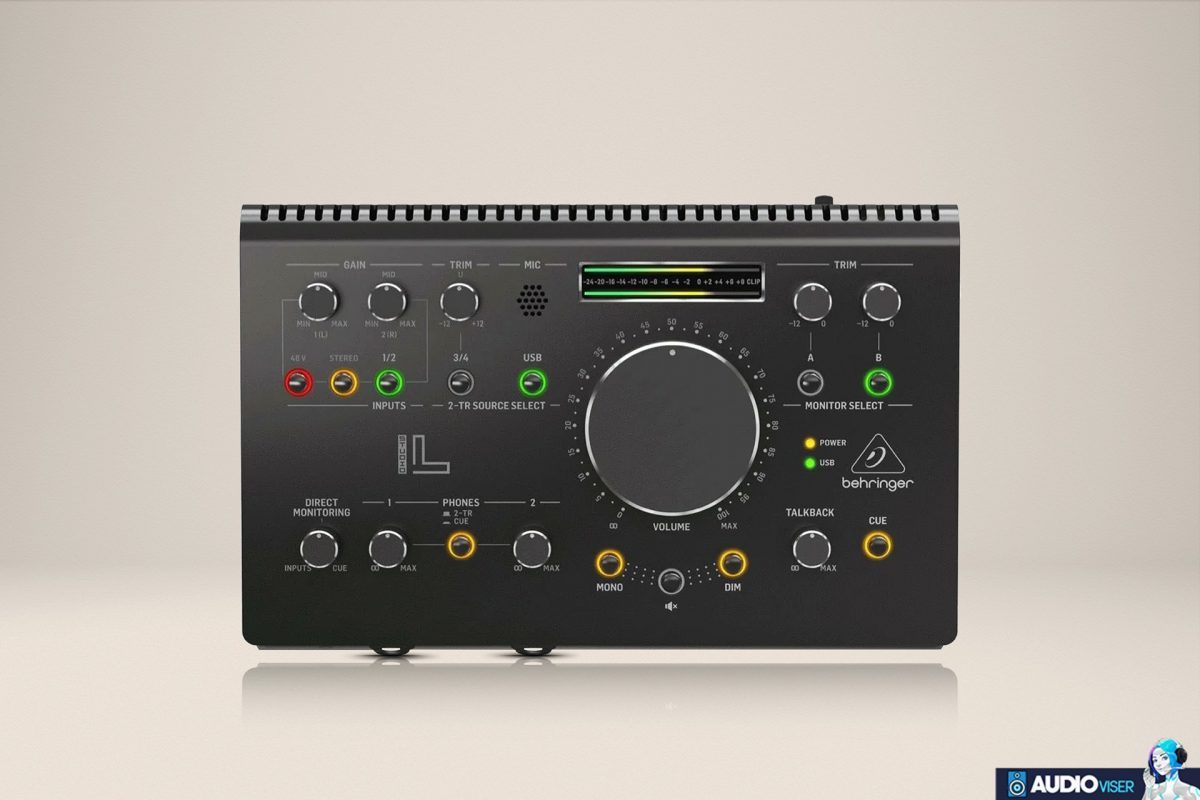
We are moving on to the main question which is “Do You Need an Audio Interface for Studio Monitors?”, and considering the fact that you are here to understand that, let me get straight to the main point.
It isn’t necessary to use an audio interface, and that means that you can use your studio monitors without one, and it isn’t essential to have them connected with one another. Studio monitors, in general, can be used easily alone as they include different wires or cords to get connected with any device that you may own let it be a computer, laptop, or whatever.
Can I connect them?
Just as it isn’t necessary t use them together, it isn’t said that you shouldn’t connect them with one another. This means that you can do whatever you want, and basically, it is up to you whether you want to use these two types of devices linked or connected with one another.
Does the use of an audio interface improve the sound quality?
An audio interface’s job is to bring better and clearer sound, so if you connect them to one another you won’t be destroying anything, in fact, everything may become better starting from the sound quality.
How can I connect them?
Even though it may sound strange and pretty simple, the best way to connect audio interfaces and studio monitors with one another is to use an RCA connector or just a simple headphone jack connector! That means that connecting audio interfaces and studio monitors is definitely the easiest thing that you can do.
Important: Benefits of Using an Audio Interface with Studio Monitors
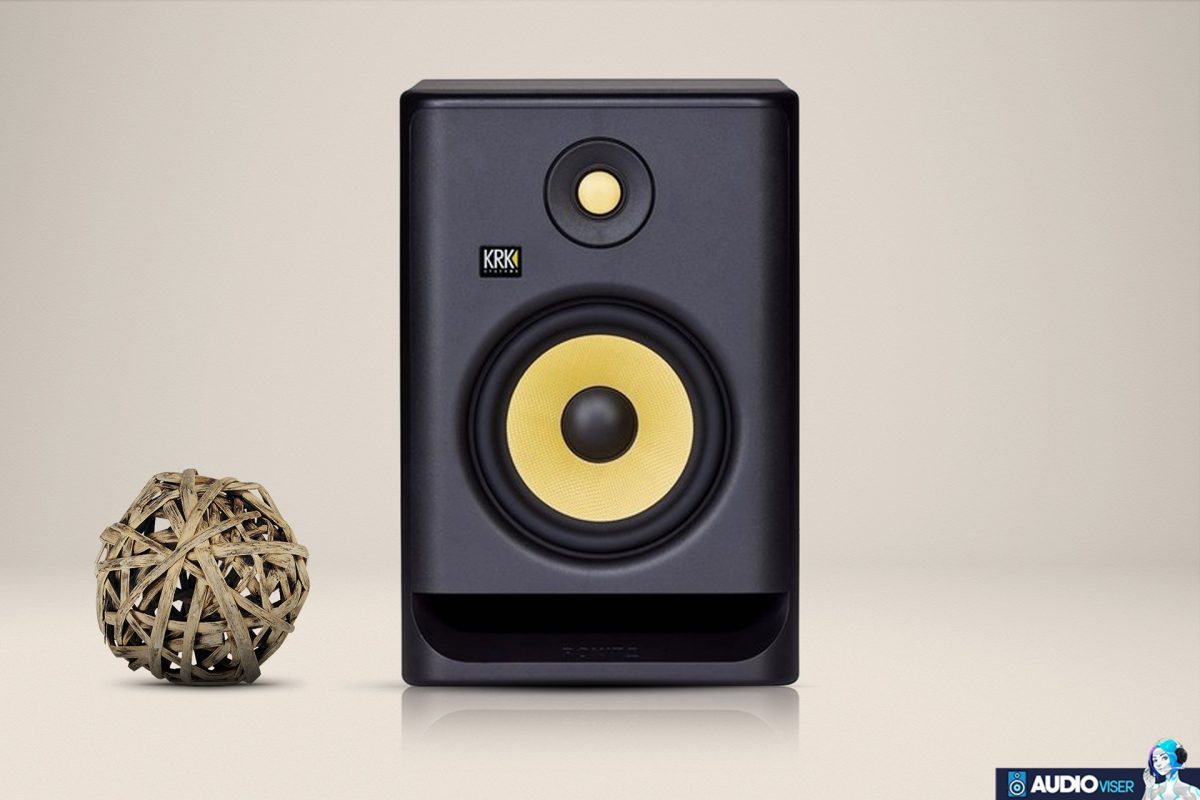
Just as mentioned above, an audio interface will do a great job while improving the sound quality, but there are also some other things that may be considered as benefits or advantages of using an audio interface with your studio monitor, and why not with other types of speakers.
The benefits of using an audio interface with studio monitors are:
Noise
With noise, I am talking about the reduction of noise in general. If you notice that there’s noise coming out of your studio monitors, and you indeed have no idea how to stop that annoying thing, an audio interface will completely do that job and reduce the noise in the best way possible so that you can listen to anything you want in the clearest way possible.
Connectivity
Even though it may sound weird somehow, an audio interface can help a lot when connecting other devices. For some people, the connectivity part of different devices may sound super difficult, but when it comes to interfaces it is the easiest thing and it can ease your job as well. They use different balanced and unbalanced plugs, as they accept any type of cable or connector that your studio monitors may own. XLR cables are the number one connectors.
Latency
As some of you may already know, especially professionals in the field of sound, latency is called the amount of time that your audio signal take to enter into your computer. If you don’t want to use too much time while converting your audio files into formats for your computer, an audio interface is there for you. It doesn’t matter if you use the best audio interface or the most expensive one, they reduce the latency in many ways so that you don’t have to wait for the conversion to happen.
Final Words, Conclusion
Thinking about everything that I wrote in this article, you guys should have in mind and conclude one thing, audio interfaces aren’t specifically made for studio monitors and it is not a must to use them connected with one another, but still, when you do so, you will improve everything on your recording studio.
I hope that in this article I was clear enough to tell you guys and help you understand the importance of both studio monitors and audio interfaces. I would like to say that once you use an audio interface you will notice how good it is and how good it will make your music sound!
Have fun!
Further Reading
Check some other articles related to audio interfaces, such as Focusrite Vs. PreSonus Audio Interfaces. Or, you can find out how long do audio interfaces last.
And you can also read about the best budget audio interfaces. Enjoy!
Equipment Tester & Reviewer
I’m an unbiased audio equipment tester & reviewer, dedicated to keeping you up-to-date on the latest and greatest in audio gear.

